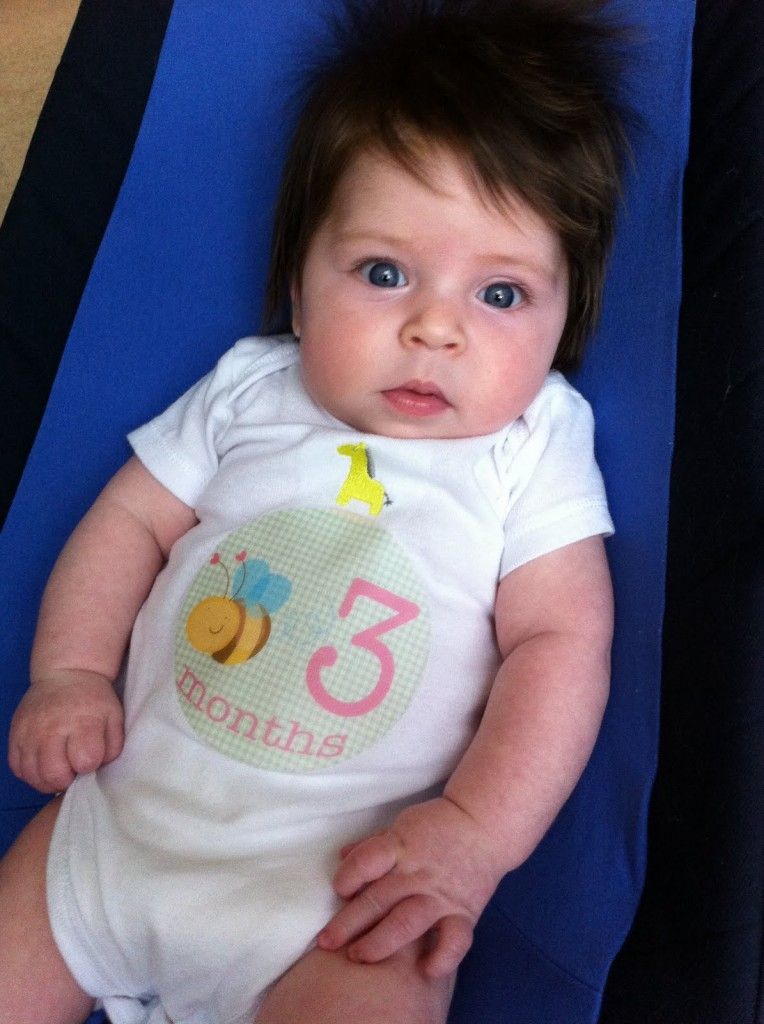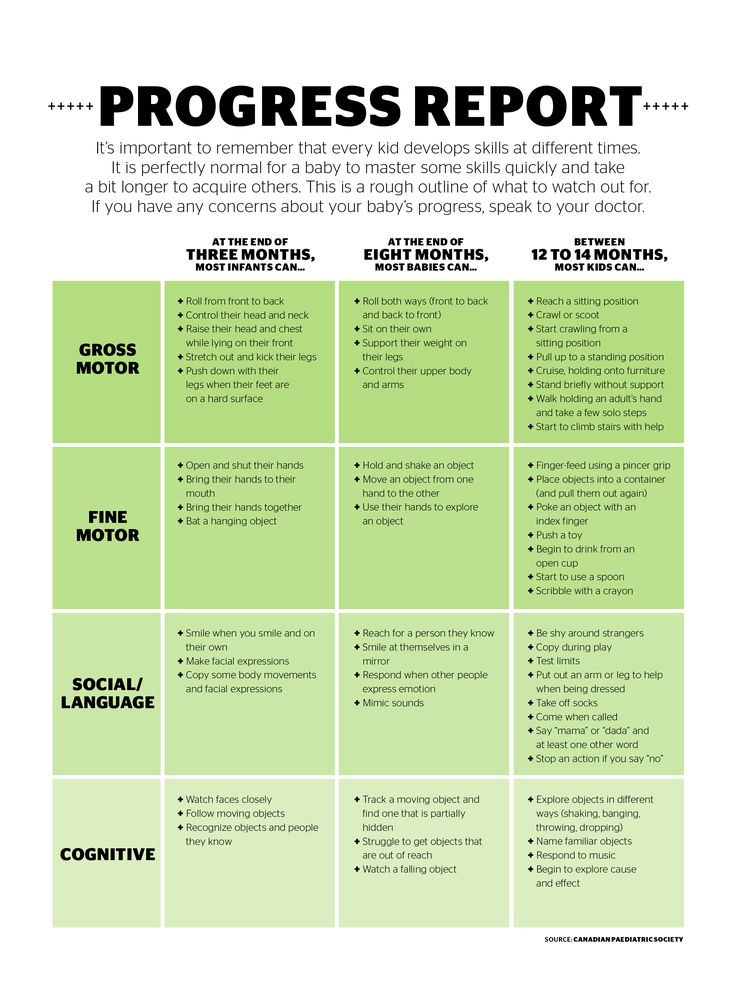How to comfort someone who has lost a child
The 8 Best Ways to Help Someone Who Has Lost a Child
Do you know someone whose child died?
Are you wondering what to say to them or how you can help?
If you don’t know what to say to heartbroken parents after the loss of a child it’s not because there’s something wrong with you!
Most of us were not taught how to help grievers. And what we were taught was usually incorrect. Things like:
- To grieve alone
- To put on a happy face
- To be strong for our loved ones
We were even told that Elisabeth Kübler Ross’s five phases that terminally ill patients often go through when dealing with their own deaths are stages of grief. Unfortunately, a lot of people apply those stages to grievers rather than people who are facing their own mortality.
Just because a piece of advice is popular doesn’t mean it's helpful.
Talking about the death of a loved one can be taboo too. It’s as if grief is in the same category as talking about politics, money and religion. Frankly, grief and loss are two of the most misunderstood topics in the world.
Is it any surprise then that we don’t know what to say to bereaved parents and family members who are experiencing grief?
So let’s address this here and now. We know you care, have a big heart and want to help (or you wouldn’t be reading this).
Here are helpful things to say to parents who have had a child die and answers to some of your most frequently asked questions about what you can do for them.
What can I say to someone who has lost a child?
Start by telling the truth about yourself or asking what happened:
- I can’t imagine how heartbreaking that must have been for you.

- I don’t know what to say.
- What happened?
I feel uncomfortable when people are sad. Do you have some tips on how to listen, so they feel safe, heard and supported?
- Be a heart with ears. Follow every word they say and stay in the moment.
- Be patient. Give them time to talk without interrupting. It can be hard for grievers to formulate their thoughts and words, so they may take longer than usual.
- Let them share openly without judging, correcting, criticising or analyzing them.
- Remember, it can be painful for grievers to talk about their loss. Allow them to feel listened to and safe, even if you feel uncomfortable.
Is it okay for me to cry while they’re talking?
Yes! Allow yourself to have your normal and natural feelings too.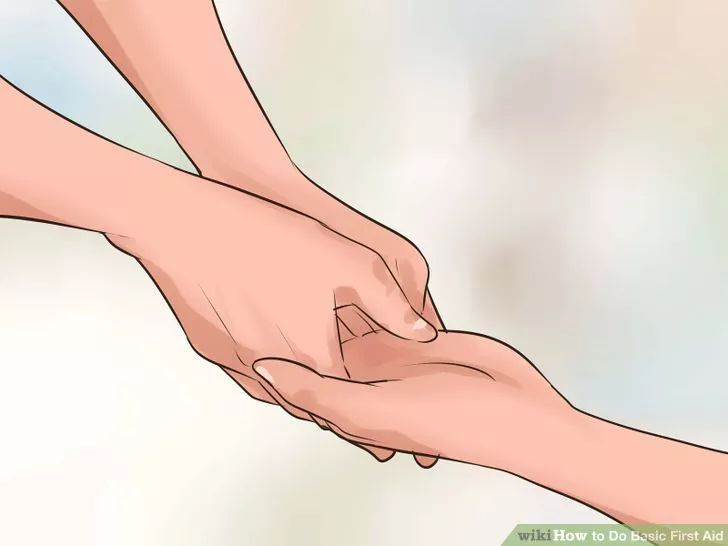 If you feel like crying then cry. If they say something funny then laugh right along with them.
If you feel like crying then cry. If they say something funny then laugh right along with them.
Is it okay to talk about my own child who died or other losses?
Remember that every relationship is unique, so we don’t think people should compare losses. However, if listening to them brings up memories for you, go ahead and tell the truth about yourself. You might say something like,
“I hear you loud and clear, and although I don’t know how you feel, I can certainly relate to what you’re saying. When my son died I felt……”.
Is it okay to talk about the child who died?
Yes it is. It’s common to think that it’s too painful for bereaved parents to talk about their child who died, so well meaning friends and family often avoid the subject. The problem is that it can also be painful when no one wants to talk about it.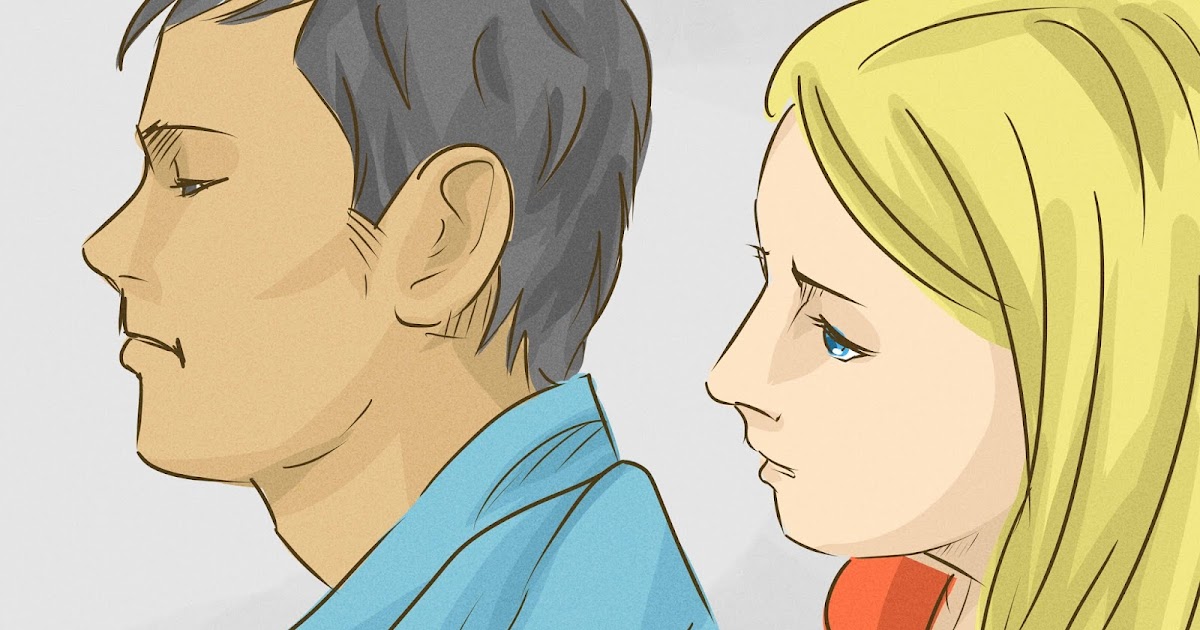 Grieving parents may think that their child has been forgotten or that no one cares, so they should feel better by now.
Grieving parents may think that their child has been forgotten or that no one cares, so they should feel better by now.
Should I give bereaved parents space to be alone?
You’ve probably been told that grievers just need a little space. We hear it so much in our culture that you might think that avoiding mothers and fathers after their child died is helpful, right?
Grievers might feel like there’s something wrong with them if they’re being avoided. They may wonder, “Why don’t I feel better already?”. This can lead to Academy Award Behavior, i.e. acting as if they are healed when they aren’t.
How long will my grieving friend need support?
Grieving parents tend to be showered with love and attention immediately following the loss, which is great. They also need grief support down the road. Continue to show up for them during the weeks and months following the death of their child.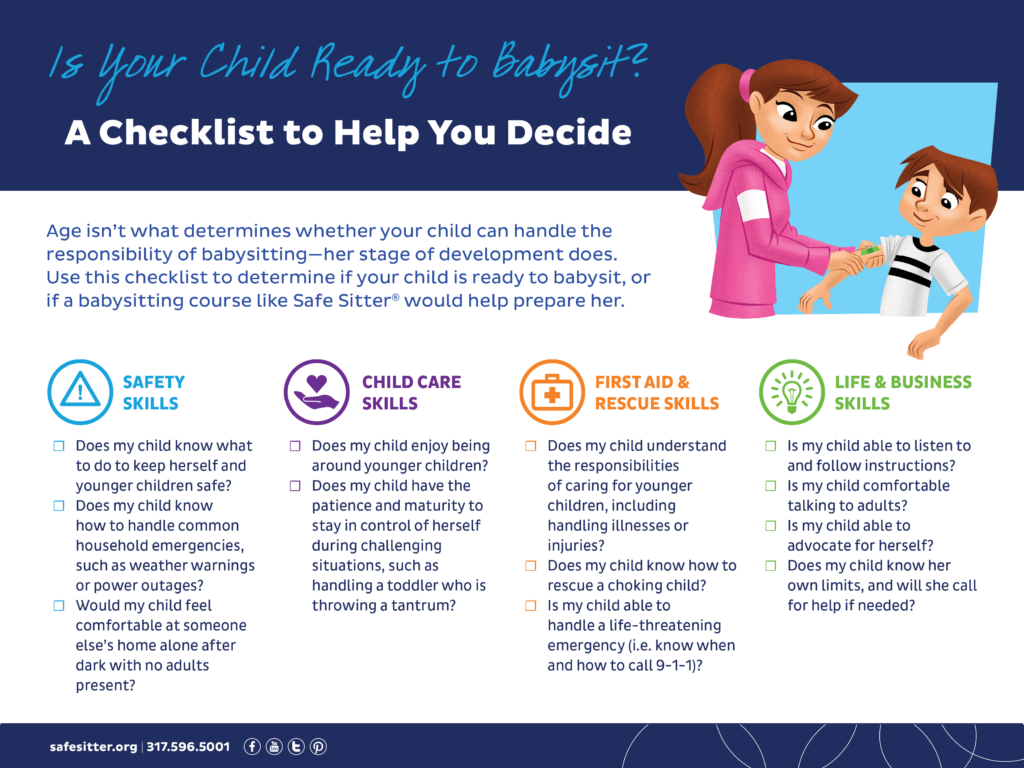 You might even keep track of important dates, like the child’s birthday, so you’ll remember to give them a loving call on those often painful days.
You might even keep track of important dates, like the child’s birthday, so you’ll remember to give them a loving call on those often painful days.
Should I recommend the Grief Recovery Handbook, 2 ½ Day Personal Workshop or your Grief Recovery Support Groups to grieving parents?
Absolutely, if you feel it’s the appropriate time.We know that time by itself simply passes. It’s the actions we take within time that allow us to heal after a loss.
One thing that’s important to remember is that a mother or father who has experienced the heartbreak of losing a child might be afraid to do Grief Recovery. They might also think they'll never recover.
As Russell Friedman put it,
“One of the most prevalent and damaging concepts related to the death of a child is the idea that you can never get over the death of a child. While it is impossible to ever forget your child, the idea of never getting over it adds a life in purgatory for the surviving parents and others.”
While it is impossible to ever forget your child, the idea of never getting over it adds a life in purgatory for the surviving parents and others.”
In over 43 years of helping grievers, we’ve seen heartbroken parents get complete with the hopes and dreams about the future that will no longer come to fruition. We’ve seen them able to think about their kids without feeling agonizing pain.
So by all means, feel free to direct your grieving friends and loved ones to The Grief Recovery Method where they will find the resources they need to heal their broken hearts.
You can also grab them a copy of The Grief Recovery Handbook or introduce them to our 2½ Day Personal Workshop. The 2½ Day Personal Workshop will give them tools to process their grief. The goal of every workshop is to help grievers regain a sense of hope and purpose in life.
Now that you know what to say to grieving parents, you might want to see what’s harmful to say to someone who has been devastated by the loss of a child: 19 Worst Things to Say to Someone Who Has Lost a Child
How to Comfort Someone Who Lost a Child: Step-By-Step
Every parent's worst nightmare is losing a child. Without a doubt, the pain of losing a child is indescribable. Knowing how to comfort someone who's grieving their child's death or offering the right words to say can be intimidating. Most people are uncomfortable talking about death and never really know what to say.
Without a doubt, the pain of losing a child is indescribable. Knowing how to comfort someone who's grieving their child's death or offering the right words to say can be intimidating. Most people are uncomfortable talking about death and never really know what to say.
Jump ahead to these sections:
- Steps for Comforting a Loved One Who Lost a Child
- Tips for Comforting a Loved One Who Lost a Child to Sudden Illness or Addiction
- More Tips for Comforting a Loved One Who Lost a Child After a Long Illness
Saying the right thing seems next to impossible when witnessing the overwhelming grief and sorrow a parent feels when their child dies. For a parent, coping with the grief of losing a child can feel like navigating through rough waters in an impossibly small rowboat or dinghy. Unable to keep steady and with no land in sight.
A child’s death changes a parent forever, and any sympathy message for the loss of a child seems vastly inadequate. However, you may want to provide whatever gentle words and supportive actions you can to help someone grieving with the unimaginable.
However, you may want to provide whatever gentle words and supportive actions you can to help someone grieving with the unimaginable.
Steps for Comforting a Loved One Who Lost a Child
Parents mourning the loss of a child will tend to experience the classic symptoms associated with grief - denial, anger, bargaining, depression, and acceptance. Processing and working through their grief may take months, if not years. Once the initial shock wears off, an entirely new set of fears emerges.
The pain of their loss is extraordinarily surreal and heartbreaking. The following are some ways of how to comfort someone who lost a child when saying sorry for your loss is not enough.
» MORE: Meaningful sympathy gifts that aren't flowers
1. Be present and available
Being present and available to help a loved one through the pain of having lost their child can be overwhelmingly taxing on your energy and emotions.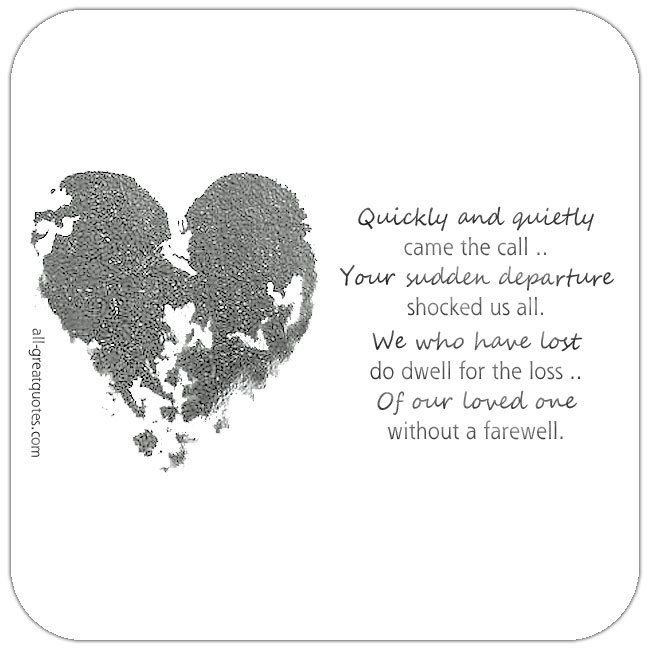 Remember always to be loving and nonjudgmental regardless of the number of times you'll have to sit through listening to the heartwrenching description of the pain they're suffering.
Remember always to be loving and nonjudgmental regardless of the number of times you'll have to sit through listening to the heartwrenching description of the pain they're suffering.
Not understanding can lead to frustration and saying things you'll later regret—so try to practice focusing on the present moment. Find ways of offering your help and support to your loved one so that they can get through the first few moments following the death of their child.
2. Offer open-ended help and support
No one wants to organize a funeral for their child, but sadly it may have to take place. It's one of those life-altering things that no parent ever wants to have to go through. You can help by offering to organize the funeral, calling the funeral director, and taking care of all of the details for the grieving parents.
Offer help in creating a slideshow for the funeral or memorial service by doing it yourself or asking others for their support. Let those who are grieving know that you're there to help them in any way that makes sense for them.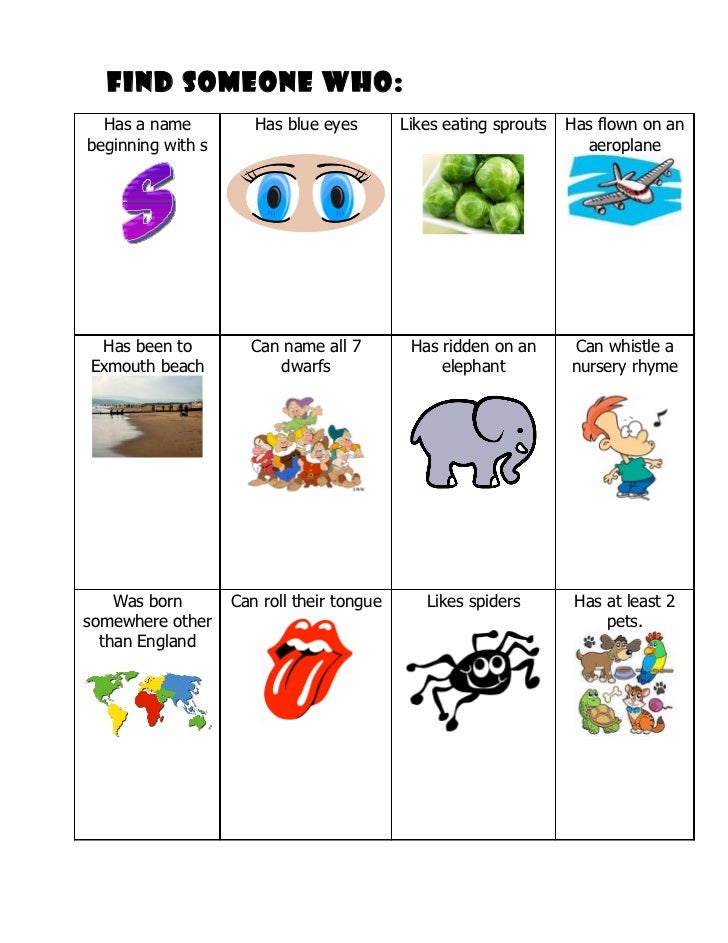
3. Give them room to talk about their loss
The experiences of the day they lost their child will forever be etched in your loved one's mind. Allow the opportunity for them to talk about how their child died and how they are coping with their death. Reliving the experience may have a cathartic effect and help them with healing from their pain and sorrow.
Try not to offer any advice or correct their way of thinking or feeling. Introducing any thoughts of doubt regarding their understanding of their child’s death can compound their overall anxiety. They may be obsessing over the death of their child and replaying the details of their death over and over in their mind. Have the courage to share in this vulnerable moment, regardless of how uncomfortable it may make you feel.
4. Offer practical help around the house
Someone who has lost a child may be so focused on their grief that they may completely blank on washing the dishes or taking care of the dirty laundry.
Even their sweet dog may go for days without being acknowledged, fed, or walked. Step in wherever you can to take over some of these necessary household chores that may have gone neglected. At the very least, offer to take care of the pets for a few days or weeks following their child's death. This can be one of the sweetest gifts for parents who lost a child.
Tips for Comforting a Loved One Who Lost a Child to Sudden Illness or Addiction
Losing a child to a sudden illness or addiction are two ways a parent can be left at a loss for what's happened. It's impossible to believe that their child has died, especially when it happens suddenly and unexpectedly. The pain of their loss is no different, regardless of how the death occurred. It doesn't make a parent feel any more or less bereaved.
🌻 Express your condolences with a sympathy gift.
Show your support to a grieving friend. Browse our hand-picked selection of gifts.
Explore sympathy gifts
5.
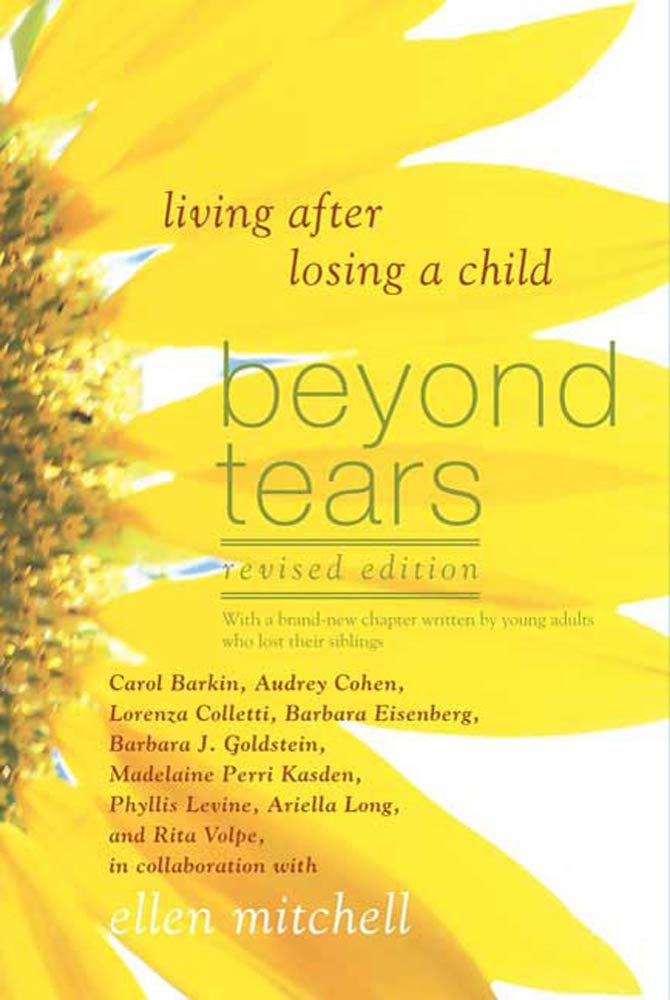 Understand the depths of their loss
Understand the depths of their loss Allow them to grieve exactly how they want to despite any affirmations of faith or loss thereof. As a friend, you can help them find a way to ease their pain, even if it's just a little each day. Educate yourself a little on addiction and sudden death so that you can talk to your loved ones about it.
Addiction is powerful and is an expected self-destructive behavior among those who are masking their pain and suffering. Find ways to validate their feelings of loss and hopelessness without adding your opinions or making it about your past losses, or focusing on the substance abuse contributing to their child's loss.
6. Ask what happened
When a child dies suddenly and unexpectedly, it's natural to wonder what happened to cause their death. Don't be afraid to ask the parents what happened, even if it's hard, painful, and difficult to talk about. Allow them to give you as much or as little information as they're willing to share with you.
Don't press for more details if you sense that they don't want to talk about it more than what they've already shared. Alternatively, encourage them to keep talking if it helps them make sense of their child's sudden death.
7. Stay in the moment
A parent who's grieving may find it hard to formulate the right words to express what they're feeling or going through. Try and be patient as they talk about their loss. Pay attention to the words they're saying and their body language and other non-verbal cues. A grieving parent will be in shock after they first learn of their child's death.
Try and be there for them as they field the incoming calls from people expressing their condolences or those that stop by to express their condolences. All that activity may be overwhelming to deal with. Try and stay in the moment to help those who are grieving manage everything that's going on around them.
8. Make a note of important dates
A friend or loved one will need continued support long after the death of their child.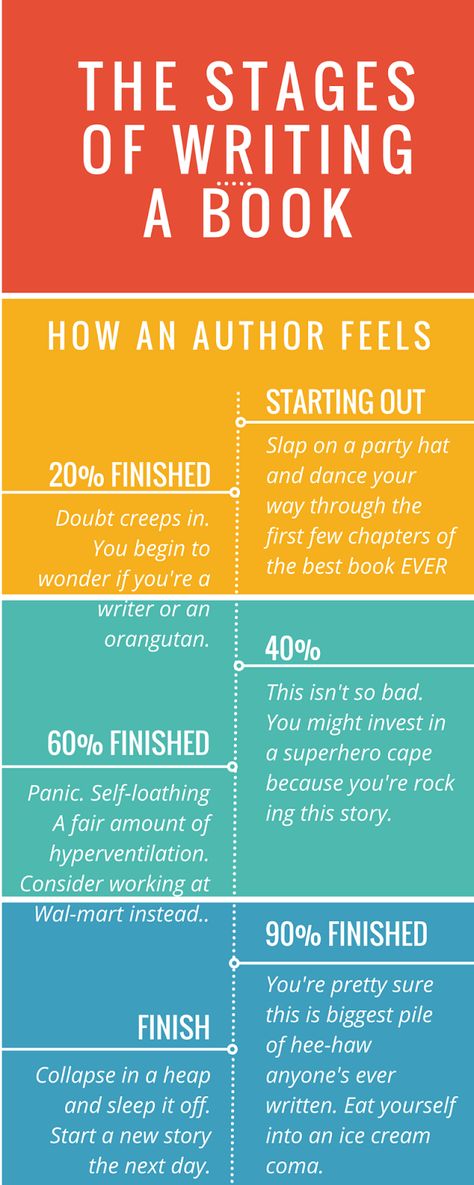 The first few days and weeks following their death may seem like a blur. Grief may not entirely set in until well after the funeral or memorial service. Most people make the mistake of supporting their loved ones through their grief only during the time shortly after their immediate loss.
The first few days and weeks following their death may seem like a blur. Grief may not entirely set in until well after the funeral or memorial service. Most people make the mistake of supporting their loved ones through their grief only during the time shortly after their immediate loss.
In truth, most parents will grieve the loss of their child for the rest of their lives. Taking note of important dates such as their child’s birthday or other significant days and placing a well-timed phone call will let your loved one know that you care and still remember the child that they lost.
More Tips for Comforting a Loved One Who Lost a Child After a Long Illness
Coping with the sudden death of a loved one is challenging enough. Dealing with a child's death after suffering through a long illness comes with its own set of challenges. A parent who faces a child's death due to a prolonged illness can start to grieve their loss well before their loss. Here are some ways to comfort someone facing this type of loss.
Did you know?
Federal law requires funeral homes to accept caskets from anywhere.
This means you can buy your casket online, saving up to 85% off the funeral home pricing.
Explore casket options
9. Share coping strategies
If you've experienced a similar type of loss, share ways for them to cope with this tremendous loss. Talk about things that both worked for you and those that didn't. A coping strategy can be something that positively influences those around you.
When the time feels right, discuss the soothing consolation of volunteer work while they're enduring the grieving process. Your experiences may offer them some resolution, hope, or a direction toward healing.
10. Encourage them to be active
Encourage a grieving parent to become active instead of focusing on self-pity or other self-destructive thoughts and processes. Help them to discover creative means to work through their pain.
Whether it's through exercise, picking up a creative hobby, or something else, being active clears some of the mental fog associated with grief and suffering. A forward movement is a powerful tool in this particular journey through grief and loss. It helps the bereaved by giving them a more positive perspective and hope for the future.
11. Talk to them about their child
Find an appropriate time to express to your loved one what their child meant to you. Acknowledge their child by name and don't shy away from talking about them or bringing them up in conversation. You may want to recommend a grief counselor or therapist specializing in this type of loss to help them cope with their pain and sorrow.
A person who becomes consumed in their grief has the potential to fall into depression. When one cannot accept death's reality, it may lead to prolonged and unresolved grief. Their child's death may become an obsession and lead to behaviors that are unhealthy and counterproductive.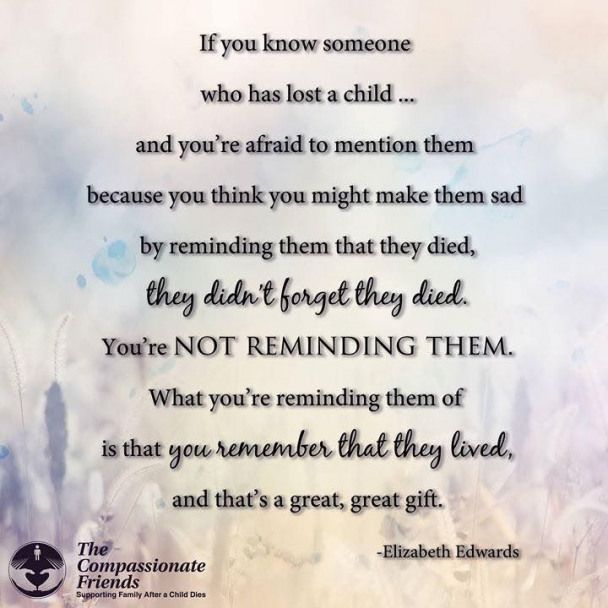
Comforting Someone Who’s Lost a Child
It is challenging to find the right path through grief. Grief can be so overwhelming and powerful that sometimes people will do anything to numb themselves from their pain and suffering. Understand that as your loved one progresses through grief, there's no right or wrong way to grieve. Their life has forever changed.
All you can do is comfort them in the best way you know how.
“I don’t know how to help, but I’m there”: what support do mothers who have lost a child need
Begin typing your search above and press return to search. Press Esc to cancel.
The death of a child in childbirth or during pregnancy is a topic that is not customary to talk about, about which we do not know how to talk. Therefore, often, wanting to help a woman, relatives aggravate her condition with wrong words and deeds. There are many myths surrounding the topic of perinatal loss. Ksenia Troitskaya, candidate of psychological sciences, medical psychologist, perinatal psychologist of the Light in Hands Foundation, named the most common mistakes that people make in such a situation and told what kind of support a mother who survived the death of a baby needs.
Ksenia Troitskaya, candidate of psychological sciences, medical psychologist, perinatal psychologist of the Light in Hands Foundation
Myth 1: Less time - less grief
It is believed that the shorter the period during which the loss occurred, the weaker the woman's feelings will be. Unfortunately, in most cases this is absolutely not the case, and a mother who lost her pregnancy at 5-6 weeks can mourn her unborn child as the closest and dearest person. And the lack of support and understanding of others will greatly enhance her experiences. In this situation, relatives often say: “don’t cry, you will give birth again”, “forget it and live on, you don’t have to dive into it.” Such words hurt a woman, devalue her feelings. It’s better to say: “I don’t know what is happening to you right now, and I don’t know how to help you, but I’m there.”
Myth 2: We need to forget as soon as possible
It is erroneously believed that the more mother cries, the worse her condition will be and the longer she will recover.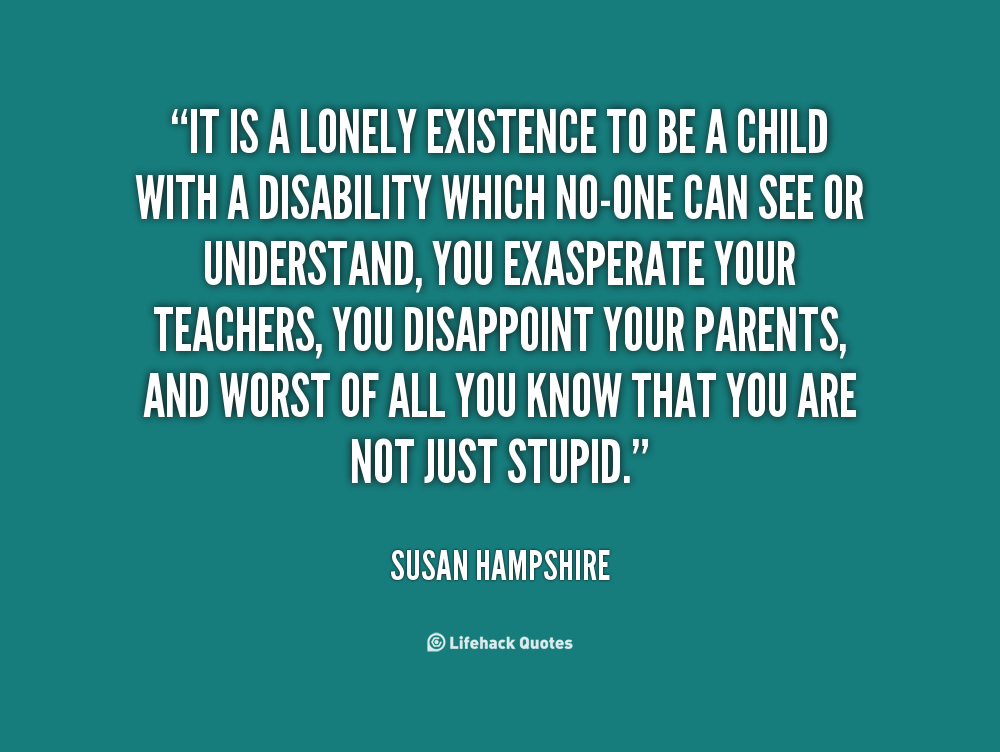 Therefore, relatives try once again not to remind the mother about the baby, not to talk about him, asking her to calm down and not cry. Do not be afraid of mother's tears - they are healing, give her the opportunity to talk about the child, create memorable dates, save things that remind of him. Before discharge, be sure to check with the mother how to deal with the things that were prepared for the baby, whether you need to clean them up or she wants to do it herself.
Therefore, relatives try once again not to remind the mother about the baby, not to talk about him, asking her to calm down and not cry. Do not be afraid of mother's tears - they are healing, give her the opportunity to talk about the child, create memorable dates, save things that remind of him. Before discharge, be sure to check with the mother how to deal with the things that were prepared for the baby, whether you need to clean them up or she wants to do it herself.
It is important for a woman to know that her child is remembered, that she is not alone.
Myth 3: Don't look at him!
Another common misconception is that the mother should not look at the baby, should not pick it up and bury it. Close people sometimes sincerely believe that if a woman does not look at the child after childbirth, does not bury him: “you are young, why do you need a grave, this is forever” - then she will very soon forget about what happened and quickly come to her senses. Not quickly and will not forget ...
Not quickly and will not forget ...
She is a mother and this is her child, and you can't pretend that nothing happened. The worst thing happened to this woman - she lost her baby, she lost her future with him, her dreams and hopes. And the term will not play a role here: she was waiting for him, felt how he was growing in her body, probably talked to him, imagined how she would take care of him. Respect her grief, her loss. Enable decision making and support implementation of those decisions. And if a mother says that she would like to look at the child, hold him in her arms, you should not dissuade her. The decision on how to say goodbye to the baby, parents make themselves. And you can help in organizational matters.
Myth 4: I can't help globally, so I can't help at all
Sometimes it seems to those around them that they cannot console a grieving mother in any way, and therefore they tend to leave her alone, alone with her grief.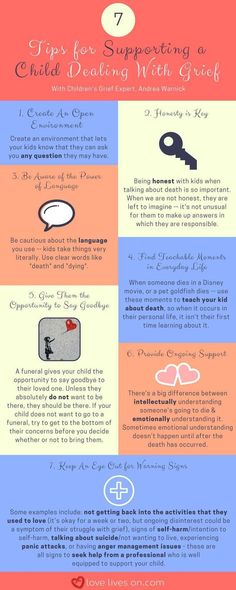 But even a small deed can help in this difficult situation.
But even a small deed can help in this difficult situation.
One of the most difficult stages a mother goes through immediately after the news of her baby's death is the stay in a medical facility. First, childbirth or surgery, which will take place in silence and she will not hear the long-awaited first cry. Then a few days in the maternity hospital, where other people's children cry, where happy mothers walk with bellies, where someone is greeted with balloons and flowers. And in her life all this will not happen, at least this time it will not happen. Women say that they wanted one thing: "to run away, to close, not to see or hear anyone." At this time, try to protect your mother from countless calls, it is difficult for her to explain to everyone what happened. In the maternity hospital, many try not to cry, not to show their experiences, afraid to scare others. Ask friends and acquaintances not to disturb mom for a while, invite them to express their condolences in messages by mail or phone. If my mother has a desire, she can call back herself.
If my mother has a desire, she can call back herself.
When the woman returns home, ask her what she needs, offer specific help. Make sure mom has groceries, or better yet, cook something. Take a walk with her older children, walk the dog, offer help with the housework - no one has canceled all these things, and in such a situation it is difficult for a woman to find strength for them.
If you managed to find specialists, books, or other information that may be useful to mom now, be sure to share it with her, but do not insist on using your advice.
When supporting a grieving mother, be tactful: do not impose yourself and follow her on the heels, but you should not leave completely alone either.
When meeting a woman, one should not ask “how are you?”, “how are you?” “Unfortunately, your mother has nothing to answer you, except that she is in unbearable pain and hard now.
A mother who has experienced a loss certainly needs your support, and this support can be expressed in many ways: a hot dinner, strong hugs, talking about a child.
Myth 5: There is a right way to deal with loss
There is no right or wrong way to deal with grief. All people are different, and the time frame of experiences is very conditional. Don't rush the woman. The process of mourning goes through certain stages, the psyche needs time to recover. The duration, nature of experiences and behavior of a woman will depend on many factors: personal characteristics, life experience, family relationships. One woman will need to constantly talk about the deceased baby, while the other will be more restrained and will not be able to share her pain with you. For one, work will be the salvation, and the other will not even be able to leave the house on her own. Be there, listen carefully to what mom says, be patient with possible emotional reactions. If something frightens you in the state of a woman or her behavior seems strange, be sure to consult with specialists.
In addition to the help of relatives and friends, a woman and her partner can seek professional help. Attend perinatal loss parent support group meetings, call a mental health hotline, write an email or message, and get individual or family counseling.
Attend perinatal loss parent support group meetings, call a mental health hotline, write an email or message, and get individual or family counseling.
In order to support people who are experiencing the loss of a child, to extend a helping hand to them at such a difficult moment, the Light in Hands charity foundation was opened. Our charitable organization is ready to help anyone who needs informational, psychological, legal or any other support related to the death of a baby during pregnancy, childbirth or in the neonatal period. We are ready to provide free help not only to moms and dads, but also to many other people affected by the death of a child: family members, friends, colleagues and healthcare workers. At the time when you need it, and for as long as it is needed. The Foundation welcomes all who contact us for support and information. And also thanks to everyone who can help us in our work.
About the fund
The Light in Hands Fund has been operating since 2016, the fund team is ready to help everyone who has an unsuccessful pregnancy, a tragedy during childbirth or a newborn baby has died.
Hotline of the Foundation: +7 925 337 94 95
You can help the Foundation on the website.
The death of a child: how to help a family survive grief
The death of a loved one is always difficult to survive. But when a child dies, it is a terrible loss for his parents. It was on working with such losses that the psychologists of the St. Petersburg public organization of social assistance "Family Information Center" focused. The loss of a child can be a deep life-long trauma for both parents - for those who drown themselves in this trauma, in despair, relationships both within the family and connections with external society collapse or are distorted. The center's psychologist, Nadezhda Stepanova, tells how the Family Information Center specialists help parents and other family members to survive the death of a child and find new hopes.
"Family Information Center" helps women who have suffered perinatal loss and their families, families who have lost a child, as well as when a premature or disabled child is born.
— Who experiences the loss more severely - a family that has lost a baby, or a family that has lost an older child?
- If we talk about the fact that it is harder to lose an older child than a newborn, then I agree and no. Each family, each situation has its own characteristics. But yes, more and more social and psychological connections are formed with parents as the child grows, these are mugs, a kindergarten, friends, relatives ... all these people and communities came into contact with the child, the family. These parents thus had more memories, more hopes. And even after the appearance of another child in the family, the parents still have memories of the lost one, but this is natural. Another question is if the parents did not subtly burn out this loss, and this may be for various reasons. For example, one of the parents was indirectly to blame for the fact that the child died in an accident.
— It turns out that egoism prevails in people's experiences: “I worry because my expectations did not come true”, “My grief”, and so on.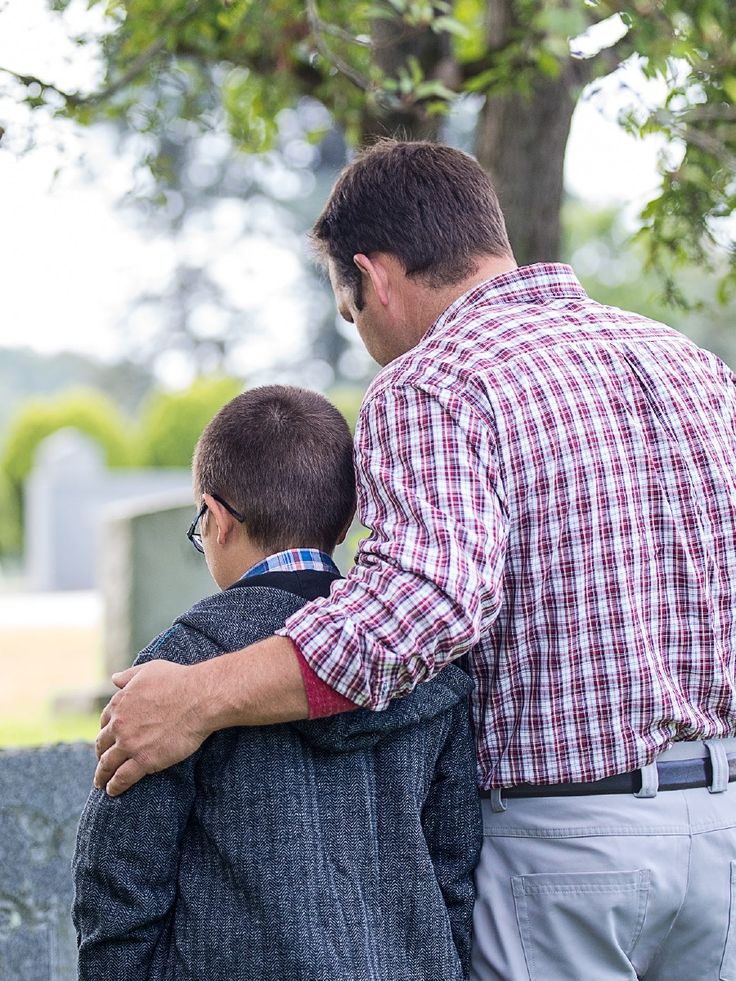 But then there is very little room left for the departed children themselves...
But then there is very little room left for the departed children themselves...
— But this is what most often happens with the loss of any loved one, not necessarily a child. More often we worry not about him, but about the fact that we were left without him and now we need to rebuild our world. We cry about ourselves, our unfulfilled dreams, plans, expectations….
— Do many parents who have lost children suffer from feelings of guilt? And how do you work with people if this guilt is real?
Everyone suffers. And how to work is a very difficult question. When a young woman eight months pregnant jumps with a parachute and loses her baby, it is, of course, very difficult to work with her - she understands that it is her fault that her actions provoked the loss. But here we must admit the fact - yes, the act was rash. Perhaps the woman was not very ready for motherhood, in her picture of the world it was not at all assumed that children could die. Or the family was preparing for the birth of a child, they did everything that was necessary and possible, but the feeling of guilt is still present. How to work? Depending on the situation. It is impossible to say that the feeling of guilt goes away quickly and forever. Sometimes this takes a long time.
How to work? Depending on the situation. It is impossible to say that the feeling of guilt goes away quickly and forever. Sometimes this takes a long time.
6 documentaries about survivors of the death of loved ones
- The funeral of a deceased child - how do you discuss this problem with clients? Especially when it comes to newborn babies.
— Often mothers sometimes do not even want to look at their dead newborn children, they do not want to take them away to bury them. Until a certain time, there was such a practice among doctors - to say: “Why do you need to look?” But if a woman did not bury her child, all sorts of terrible pictures line up in her in the future. For example, a woman came already about her grandchildren (she is a fairly young grandmother), but it turned out that her child died in her first marriage, but she did not look at him, did not begin to take him away, and then she began to imagine his appearance, then I began to search the Internet for information about what happens to the bodies of such babies - someone says that they are used as a biomaterial, someone says that they are thrown into a common pit, and so on. And she says: “I began to imagine all this. And how can I live with it now? Families who have already made a decision come to me, the woman left the hospital and now she is looking for confirmation from me that she did the right thing by refusing to look at the child and bury him. But for believers, the question of whether or not to bury a child does not arise at all. Therefore, it is important that psychologists working with such families have a unified approach and understand the necessity and importance of this stage. In Germany, if at first the family does not want to look at the child and bury him, she is given some time to comprehend her desires and actions, for which the family can change her mind. It would be great if we adopted their practice.
And she says: “I began to imagine all this. And how can I live with it now? Families who have already made a decision come to me, the woman left the hospital and now she is looking for confirmation from me that she did the right thing by refusing to look at the child and bury him. But for believers, the question of whether or not to bury a child does not arise at all. Therefore, it is important that psychologists working with such families have a unified approach and understand the necessity and importance of this stage. In Germany, if at first the family does not want to look at the child and bury him, she is given some time to comprehend her desires and actions, for which the family can change her mind. It would be great if we adopted their practice.
— If there are other children in the family, do you also work with them?
- Yes. You have to work with children. After all, children understand what is happening. If parents do not tell them about what happened, they develop neuroses, fears, and sometimes not directly related to death. And parents often do not tell their children about the death of a sibling. They explain it like this: “Why?” Especially if a newborn baby dies, they come up with some kind of story or generally impose a ban on this topic. At the same time, the child sees that everyone is crying, that mom and dad are not up to him, he can be sent to his grandparents. The child feels isolated from the family, in a kind of isolation zone. And he has some fantasies of his own, with which he then has to cope on his own, the fantasies of a child are sometimes worse than reality. So I think that the child should definitely be told about the death of his brother or sister, but find the right time for this and think about what words to say.
And parents often do not tell their children about the death of a sibling. They explain it like this: “Why?” Especially if a newborn baby dies, they come up with some kind of story or generally impose a ban on this topic. At the same time, the child sees that everyone is crying, that mom and dad are not up to him, he can be sent to his grandparents. The child feels isolated from the family, in a kind of isolation zone. And he has some fantasies of his own, with which he then has to cope on his own, the fantasies of a child are sometimes worse than reality. So I think that the child should definitely be told about the death of his brother or sister, but find the right time for this and think about what words to say.
— But even a child himself can feel acutely the death of a brother or sister.
- Of course. Again, especially if there is already some history of their communication. And most importantly: in any case, a child can also become depressed because of such events in the family.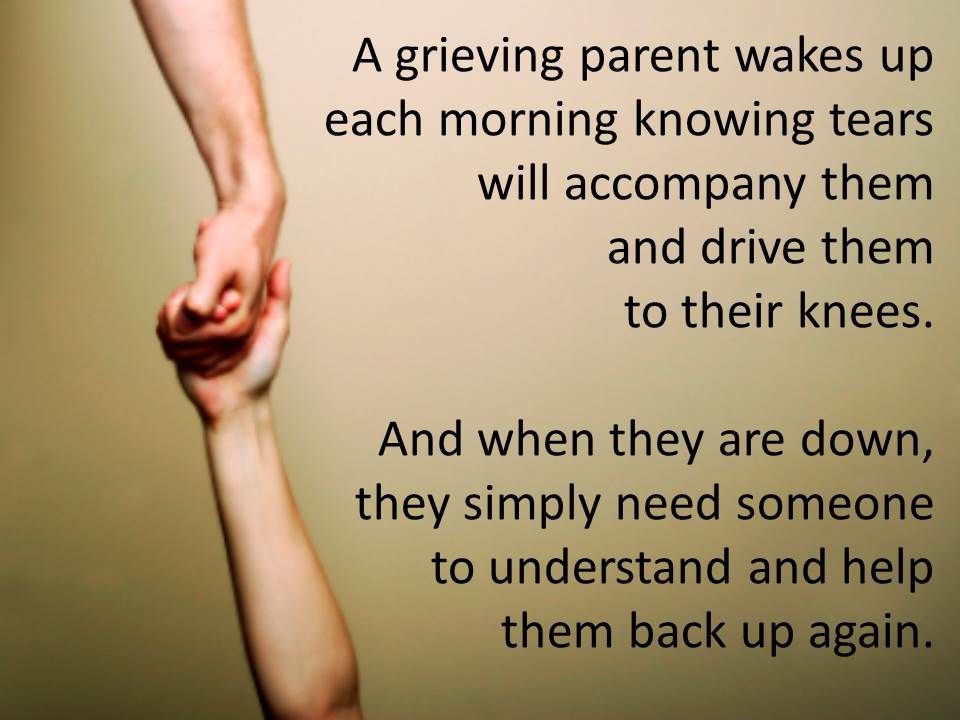 It is believed that if a child jumps and jumps, it means that he is having fun and well. But he can in such a way draw the attention of his parents to himself so that they switch and they become fun, and the child thus receives for himself the “former” parents, such as they were before the loss.
It is believed that if a child jumps and jumps, it means that he is having fun and well. But he can in such a way draw the attention of his parents to himself so that they switch and they become fun, and the child thus receives for himself the “former” parents, such as they were before the loss.
— How should other neighbors of those who are experiencing the loss of a child behave? What can not be said, and what can and should be said?
- Rather, I will say that it is impossible. You can’t say immediately after it happened: “You will have more children.” After all, the parents have not yet cried, they have not burned out. You can’t offer to go to work, forget yourself, stop crying - that is, you can’t offer any kind of blocking of emotions. Moreover, you can’t say: “I’m tired of you crying.” It is impossible to blame, even if objectively the parents are to blame for the death of the child. You can’t devalue the loss: “the pregnancy was not on time”, “whatever is done, everything is for the better” and the like . .. The parents themselves already have enough guilt, you just need to support them. In general, you can touch these topics only when the parents themselves want to talk about it. What needs to be done? Give the opportunity to cry as much as necessary. But at the same time, look at whether a person closes in on himself or not. If he leaves society, this is an alarming sign. In this case, you need to call, come, do not leave your attention. To talk and, most importantly, to listen, keeping oneself from advice and comparisons: one cannot say that everything is much worse for someone, this is also a depreciation.
.. The parents themselves already have enough guilt, you just need to support them. In general, you can touch these topics only when the parents themselves want to talk about it. What needs to be done? Give the opportunity to cry as much as necessary. But at the same time, look at whether a person closes in on himself or not. If he leaves society, this is an alarming sign. In this case, you need to call, come, do not leave your attention. To talk and, most importantly, to listen, keeping oneself from advice and comparisons: one cannot say that everything is much worse for someone, this is also a depreciation.
— And if a person abruptly refuses to communicate?
- If a person lives alone, then you still need to call sometimes, just to say: "I'm here, you can call me at any time." You can write SMS, write messages on the Internet, on Skype. Today there are many opportunities to let a person know that he is not alone.
— A woman should be allowed to cry.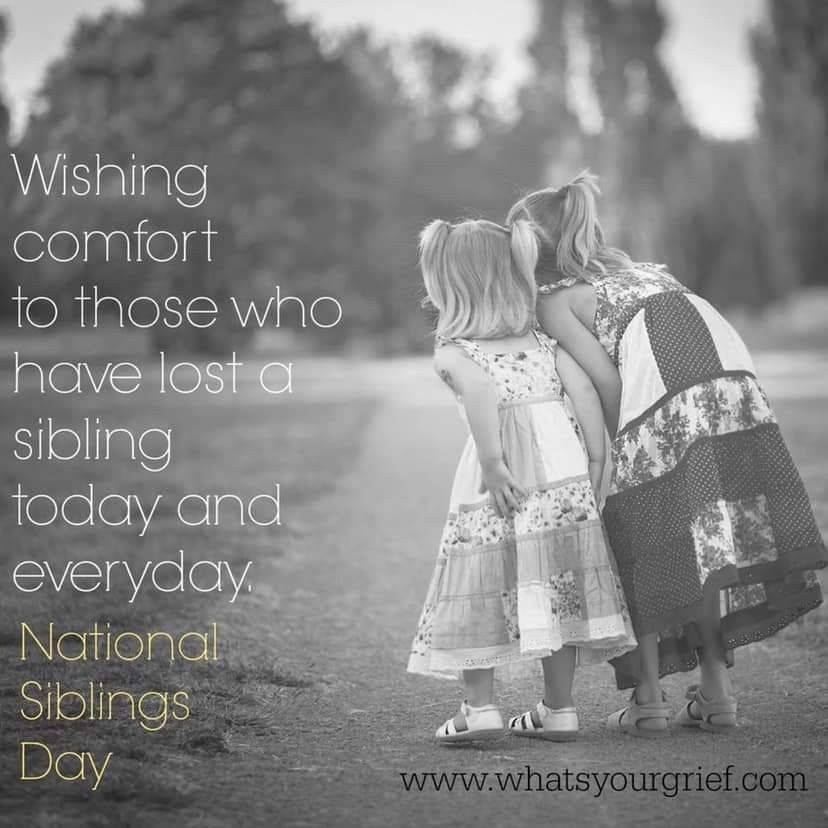 What about a man?
What about a man?
Men also cry. And it's great when a man can afford it. For men, I suggest, if possible, to take a joint vacation - in order to be with yourself, with your wife. Some families leave - not for fun, but in order to jump out of the familiar and traumatic space. It is important for a man to know how he can help his wife, how to answer questions from others, for example: “Yes, we lost a child, but now I don’t want to talk about it.” But this does not mean that he is not worried and the man does not need time to live the loss.
— Do people come to you years after the loss?
- I must say that they rarely come right away, that is, in an acute state of grief. But it happens that they come after a very long time. Sometimes they come with other questions related to family relations, and when I start asking about the family's past, it turns out that there was a loss of a child. And here, if a person is ready to talk about it, then either this is a lived story, and he tells it in the same way as I can tell my story, or these are strong feelings, emotions, grief is re-experienced, people say: “We didn’t tell anyone about this ".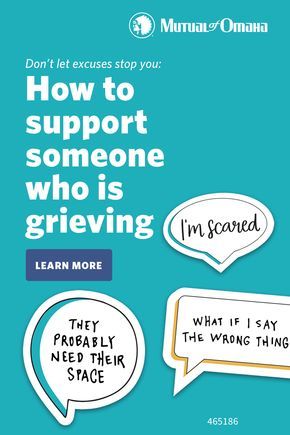
— Older people who once experienced a loss can somehow support young people with the same problem?
- Of course. An older person might say, “Look at me, I'm 75 years old. It’s hard for you now, you can’t forget it, but you can survive it. ” Now I will say a phrase that can shock many in this context: one way or another, any experience enriches a person. Suffering also makes our picture of the world richer. And here the elderly can show this by their own examples. But when the only grandson or granddaughter dies, grandparents experience no less strong feelings than the parents of the child. After all, this is also connected with their unfulfilled expectations, they think that other grandchildren may not wait.
— Perhaps, in general, one of the main problems is that we expect too much from each other?
- Yes. And when our expectations and our fantasies do not come true, it becomes a disaster for us. There are people who are ready to quickly rebuild, and there are people who are not ready. Of course, in a crisis situation, any discrepancies are exacerbated.
Of course, in a crisis situation, any discrepancies are exacerbated.
— There is an old saying: "God gave - God took." In fact, this is a summary of a fragment from the biblical Book of Job. Do you think people used to take easier the deaths of their children?
- I think so. There was more hope in God and understanding that a person is not able to fully manage his life and death. And I also have to tell clients that each of us has his own deadline.
— Doesn't the lack of such an understanding give rise to hyper-responsibility?
- I talk about this all the time at seminars and webinars - not only on loss, but on issues related to children in general. Still, parents need to be easier in certain matters. Sorry, but in the 50s and 60s, a child often had a single enamel pot. And now they are arguing: "Here, the child does not go to the blue pot, let's buy him a red one." And the mother is told that if her child does not go to the potty at the age of one and a half, then she is a bad mother. And there is another point: before women gave birth to how many children? How much God has given. And now? Most are one or two. Moreover, social and economic conditions could have been much worse before. Therefore, I often say that it is not necessary to neuroticize parents - they also have a life besides the child. For a child, it is a disaster when the life of his parents is focused only on him. Parents of children with special needs are more susceptible to this. I remember one family in which the youngest child had very severe symptoms - lying down, with mental retardation. He lived to be 10 years old and at that age he could only lie down and ride - nothing more. But his father is a doctor, his mother is a teacher, both worked and work, they did not stop their lives, but they did not send the child to a boarding school either. The child lived with them. What did they do? They secured the space in which he was, for example, made him a sleeping place practically on the floor - so that he would not fall and hit.
And there is another point: before women gave birth to how many children? How much God has given. And now? Most are one or two. Moreover, social and economic conditions could have been much worse before. Therefore, I often say that it is not necessary to neuroticize parents - they also have a life besides the child. For a child, it is a disaster when the life of his parents is focused only on him. Parents of children with special needs are more susceptible to this. I remember one family in which the youngest child had very severe symptoms - lying down, with mental retardation. He lived to be 10 years old and at that age he could only lie down and ride - nothing more. But his father is a doctor, his mother is a teacher, both worked and work, they did not stop their lives, but they did not send the child to a boarding school either. The child lived with them. What did they do? They secured the space in which he was, for example, made him a sleeping place practically on the floor - so that he would not fall and hit.
— Didn't this couple feel guilty about the fact that they probably should have been more involved with the child, and then he would have reached at least a slightly higher level of development?
- You know, I think that such thoughts can arise in any parent - it does not matter if his child is healthy or sick, whether he is alive or dead. There is always a feeling that you didn’t finish something, didn’t finish it, didn’t have time, overlooked it ... But this couple still tried to give their child a lot - they continued to engage in his rehabilitation even when experts told them that there would be no progress. Parents answered: “But he is alive, so we will do it.”
— You also work with families with children with disabilities. Can a family who is still only afraid that a child will either be born with developmental disabilities or not survive come to you?
— Our project envisages that we pick up a family when, at the stage of pregnancy, doctors reveal that the child may have some kind of pathology. Here it is very important to let a woman understand that she is not God, but a mother, and is doing the maximum that she can. If during this period the whole family applies, then it is very important to help everyone decide what and how each of them can do in this situation. When the family comes out of the state of disorientation and moves on to real action, it gives people the opportunity to see both these actions themselves and their results, which ultimately gives hope. After all, there is such a problem: often, if a woman gives birth to a child with certain developmental disorders, she fences herself off from society: “No one will understand me.” She has a fear of judgment - and indeed, not everyone around understands what is happening. And here our task is to restore its connection with society. How to form social connections in this case? Introduce the family to other families with similar problems. Families can share real experience, addresses of medical institutions, organizations whose work has the specifics of working with certain disorders.
Here it is very important to let a woman understand that she is not God, but a mother, and is doing the maximum that she can. If during this period the whole family applies, then it is very important to help everyone decide what and how each of them can do in this situation. When the family comes out of the state of disorientation and moves on to real action, it gives people the opportunity to see both these actions themselves and their results, which ultimately gives hope. After all, there is such a problem: often, if a woman gives birth to a child with certain developmental disorders, she fences herself off from society: “No one will understand me.” She has a fear of judgment - and indeed, not everyone around understands what is happening. And here our task is to restore its connection with society. How to form social connections in this case? Introduce the family to other families with similar problems. Families can share real experience, addresses of medical institutions, organizations whose work has the specifics of working with certain disorders.






